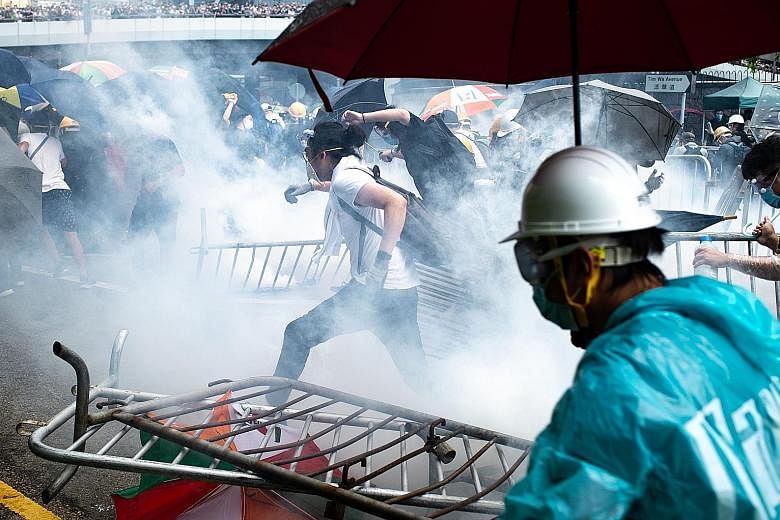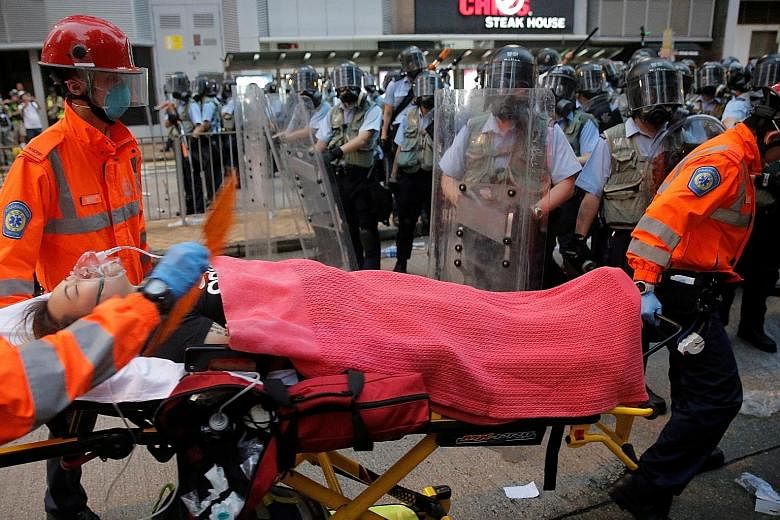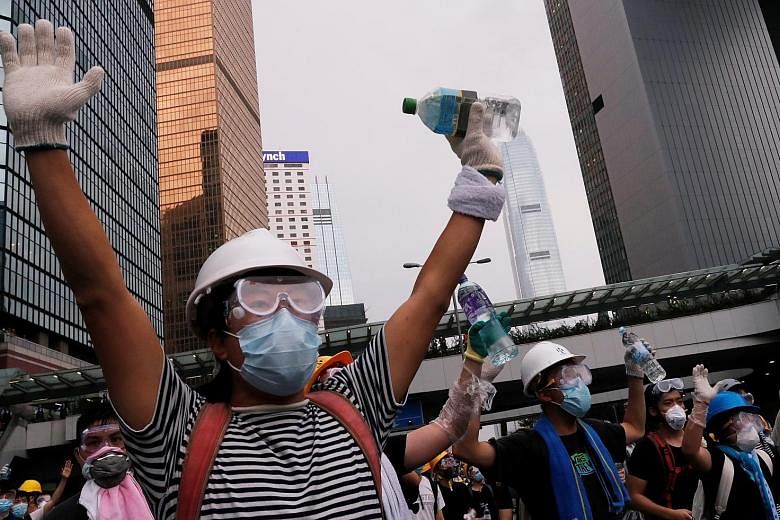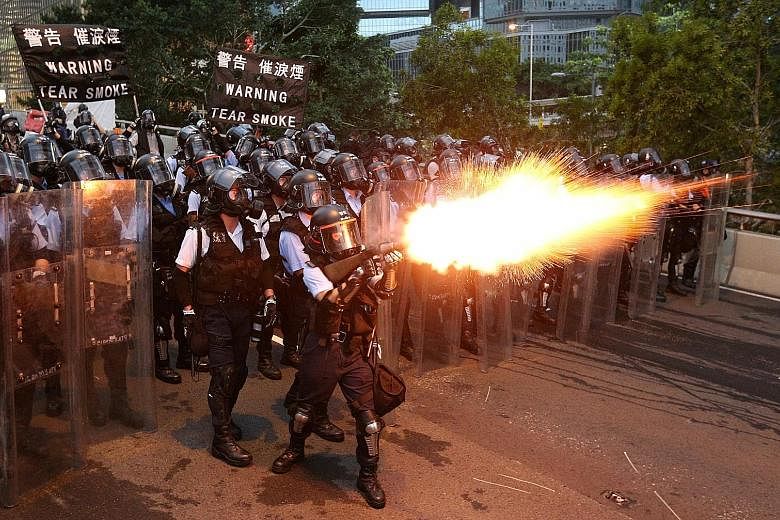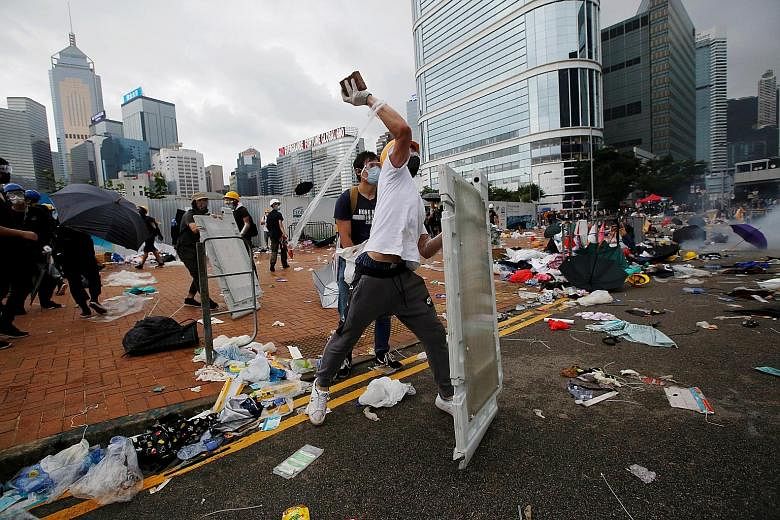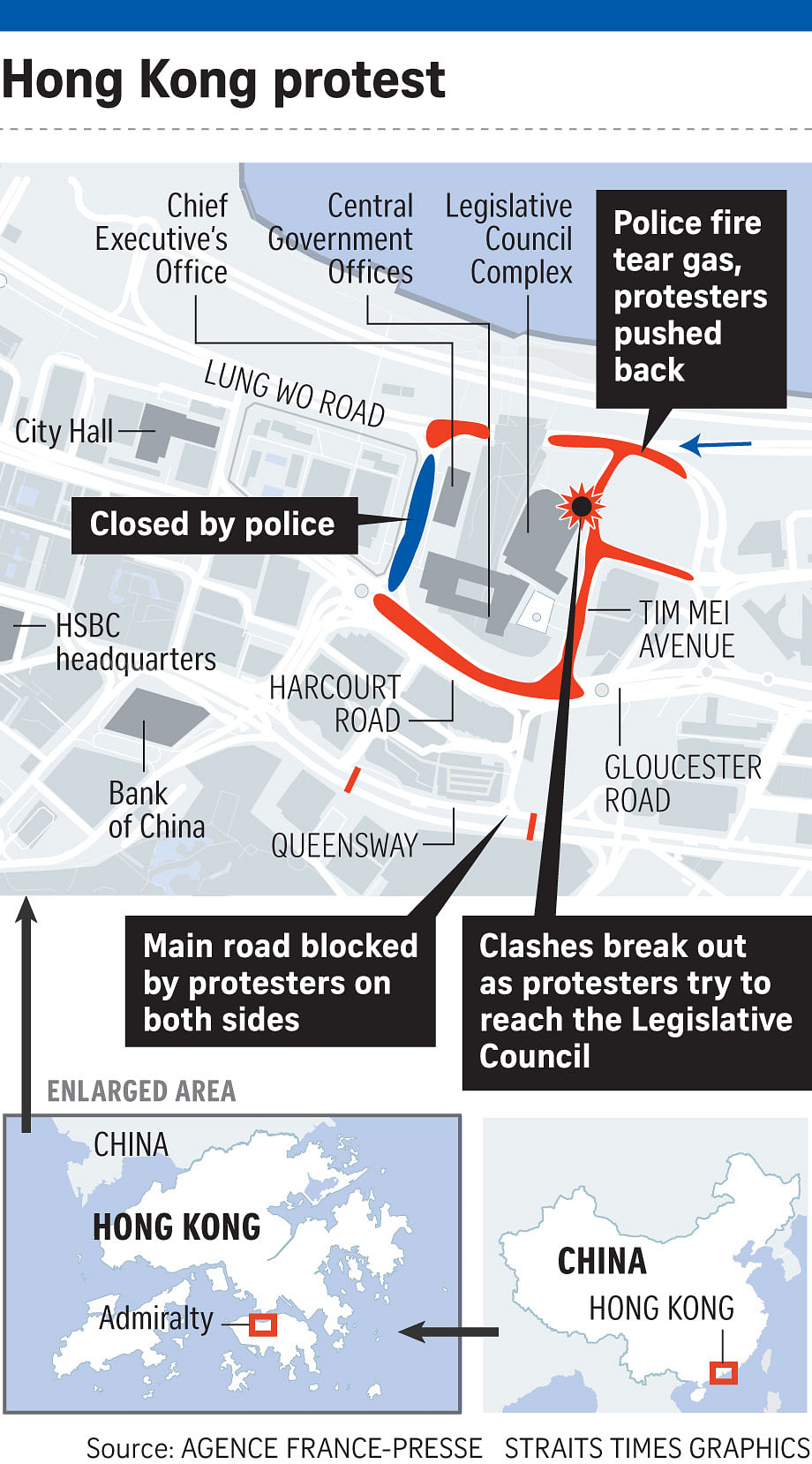HONG KONG • Hong Kong's financial markets came under pressure yesterday, with stocks falling and demand for cash surging, as protesters clashed with police during a mass demonstration against legislation that would allow citizens to be extradited to China.
The benchmark Hang Seng Index closed 1.7 per cent lower, having lost as much as 2 per cent in the afternoon, while Chinese companies in Hong Kong ended down 1.2 per cent. That compared with losses of less than 0.6 per cent in Shanghai and Asia ex-Japan.
The sell-off came amid broader concerns about the global economy due to fears that the Sino-US trade war could be prolonged.
KGI director of research Ben Kwong said stocks were due to give up some gains following their strong performance in recent sessions and the clashes on the streets provided the impulse to sell.
"This is a normal initial reaction, when you have social unrest or tension, given that we've had a few years of relative calm," he said.
But it also sent financial institutions scrambling for liquid assets, with interbank interest rates in the city shooting up across the curve.
The one-month and two-month Hibor reached their highest since late 2008, while the one-week tenor jumped 87 basis points.
A Hong Kong Monetary Authority spokesman said: "The banking system of Hong Kong is safe and sound. Local banks are well capitalised and highly liquid. Their asset quality is good and their operations are strong."
Both the Hong Kong dollar currency market and the money markets were operating in an orderly manner, the spokesman said in an e-mail statement.
As a result of the higher interbank rates, the Hong Kong dollar rose as much as 0.2 per cent to its strongest since last December. It was last seen at 7.8250 per US dollar.
The Hong Kong dollar is pegged to the US dollar at a range of 7.75-7.85. Official interest rates in Hong Kong usually move in lockstep with the US Federal Reserve.
Interest rates are usually higher and liquidity is tight during the mid-year dividend season and when there are large listings in the local stock market.
But two forex analysts based in the city said the protests added pressure, heightening concerns about capital outflows.
"This time around, people are really concerned about political risks, and worried about foreign capital leaving Hong Kong," said one of the analysts, who asked not to be named.
In September 2014, when the 79-day pro-democracy Occupy protests erupted, the local currency and stock market weakened initially but rebounded in the following month, while the Hibor curve sat below 1 per cent.
Back then, however, global growth was strong enough for the Fed to hike rates and move away from interest rates that were near zero per cent. This year, markets expect the Fed to cut rates amid concerns over growth and intensifying trade tensions.
The aggregate balance, a gauge of interbank liquidity, stood at HK$54.4 billion (S$9.5 billion) yesterday, compared with over HK$239 billion in September 2014.
As such, local markets may react differently to the social unrest given the risks of lower rates locally, said Mr Alex Wong, director at Ample Finance in Hong Kong.
Fitch affirmed Hong Kong's AA+ credit rating yesterday, citing strong public finances and a resilient economy. But the rating could come under review if there is "a move towards greater alignment of institutional and regulatory frameworks that diminish the autonomy of Hong Kong with respect to the factors that support its higher credit rating relative to mainland China", the agency said, commenting on the extradition Bill.
20 COUNTRIES THAT HAVE EXTRADITION TREATIES WITH HONG KONG
• Australia
• Canada
• Czech Republic
• Finland
• France
• Germany
• India
• Indonesia
• Ireland
• Malaysia
• The Netherlands
• New Zealand
• The Philippines
• Portugal
• Singapore
• South Africa
• South Korea
• Sri Lanka
• United Kingdom
• United States of America
Source: Hong Kong Department of Justice
REUTERS
